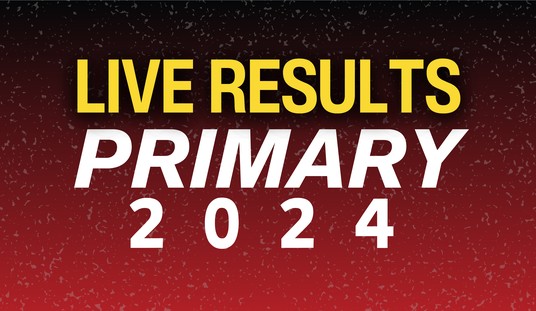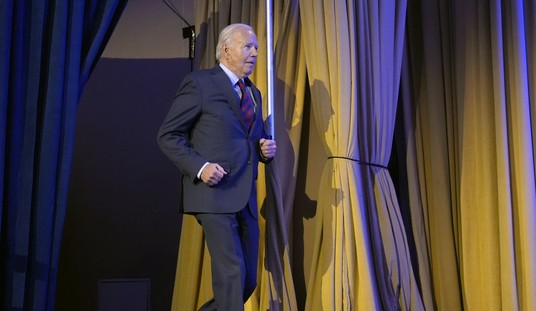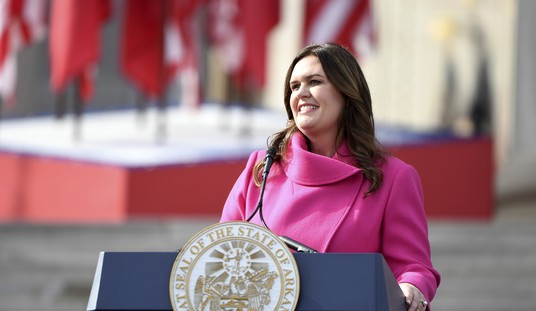According to a recent Gallup Poll, some 60% of the public believes that the federal government is doing a “poor” or “very poor” job in handling the Gulf of Mexico oil spill.
Why, then, would any sane individual support the idea of giving these same bumblers enhanced control of other key areas in our lives –like the health care industry, the car companies, or the banking system?
The looming environmental catastrophe not only reveals the hapless, flailing ineptitude of the Obama administration, but far more importantly demonstrates the limited ability of Washington itself to solve the big problems of American life. That’s why the oil spill presents such a painful predicament for Democrats everywhere—even those Democrats who have begun to question and criticize the president for his handling of the disaster. No, it’s not “Obama’s Katrina”—it’s actually much worse for his party and for his political philosophy.

Those who criticized the Bush administration after the Louisiana Hurricane blamed a reviled chief executive and some of his top deputies, trying to target individuals rather than institutions. Remember the obsession with the out-of-his-depth FEMA director Michael Brown (“You’re doing a heckuva a job, Brownie!”) –as if a different federal department head could have meaningfully reduced the suffering and devastation from an epochal natural disaster. As a matter of fact, it was the local officials (like New Orleans Mayor Ray Nagin and Louisiana Governor Kathleen Blanco) who could have made the most significant difference, by ordering more timely evacuations and more comprehensive preparations. The Katrina experience may have discredited Bush as a public personality but it only reinforced the core conservative philosophy: that state and local governments can generally serve their constituents more nimbly and reliably than the faraway and often clumsy feds.
Recommended
In a sense, the attempt by Obama’s apologists to blame the Bushies for the current misery also supports a conservative world view. Some of the slow-moving bureaucrats may indeed be holdovers from the previous administration but other important officials were hand-picked by Obama himself. In other words, the feeble federal response represents a bi-partisan failure – and an indictment of the bureaucracy itself rather than a single political party.
Administration supporters suggest that free market institutions have been even more thoroughly discredited as they attempt to place on blame on the profit-pursuers at BP. They’re right that the history of this disaster proves that unregulated oil drilling remains a bad idea, but no one in our political discourse has ever called for giving the petro plutocrats a free hand. The oil industry faces formidably detailed federal and state rules at every stage of its operations and the governmental oversight will, if anything, only intensify. But President Obama himself made an important acknowledgment at his press conference of May 27th: that BP business interests and the public’s interests completely converged when it came to sealing off the gushing oil and minimizing its damage. Even without governmental pressure, the oil companies have every incentive to avoid such disasters and to try to limit their impact when (inevitably) they do occur.
That’s why Interior Secretary Ken Salazar’s rhetoric is so unhelpful when he talks about “keeping our boot on the neck of the oil company.” The image he conveys not only brings to mind all the old imprecations about “jack-booted thugs” from the government, but also suggests a major corporation paralyzed by a boot “on its neck” at precisely the moment the public needs a powerful and supple response.
Sooner or later, private and public resources will come together to cap the leaking oil and to repair the appalling damage to the Gulf Coast. When that happens, experts will doubtless conclude that the devastation proved far less cataclysmic than first feared, and they will marvel at the recuperative powers of nature – just as they did with the Exxon Valdez oil spill of 21 years ago.
Meanwhile, Washington’s shaky response sends an unmistakable and unforgettable political message: that bureaucracies are by their very nature flawed and fallible, regardless of the party that occupies the positions of power. The events in the Gulf have done far more than leading the public to question the president’s competence. They should also encourage every thoughtful American to question his ideology, and reject his big government world view.

























Join the conversation as a VIP Member